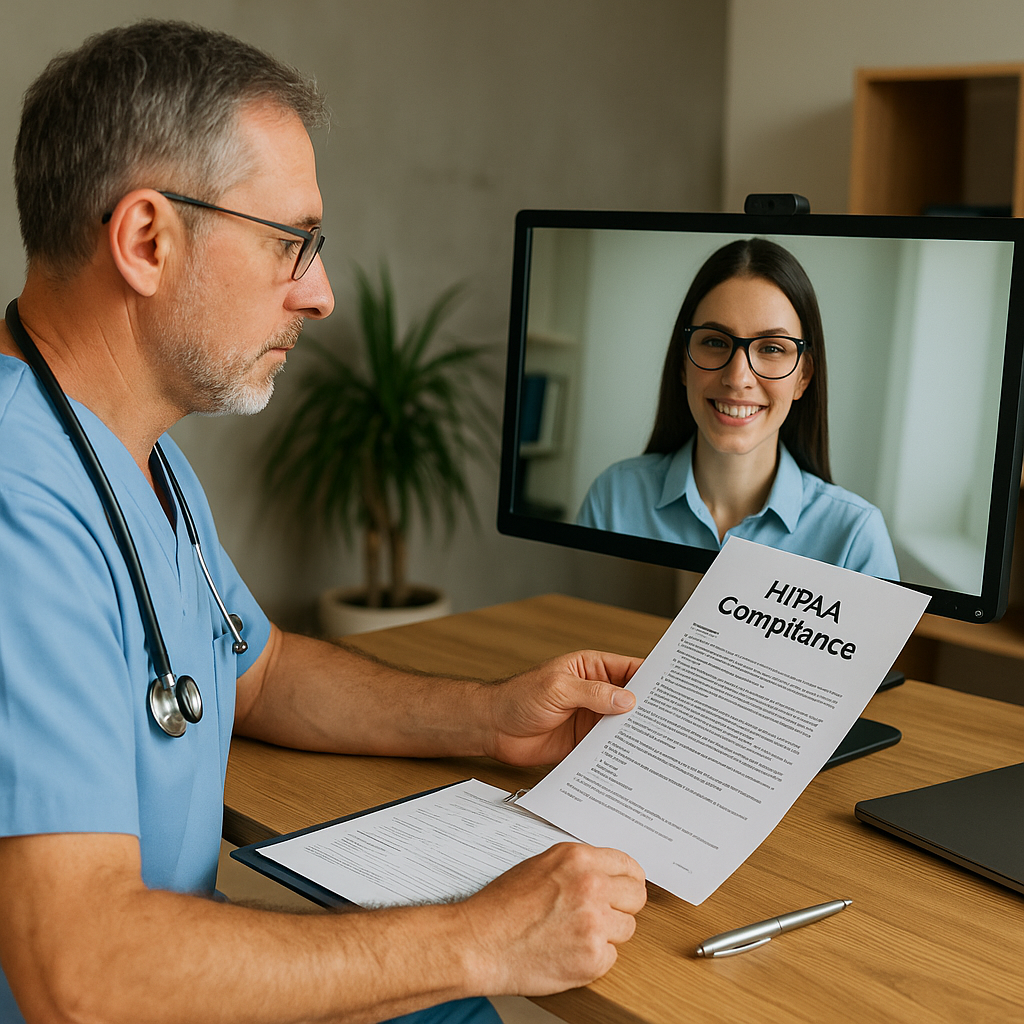Handing over access to patient information is a big decision. It doesn’t matter if it’s a new in-house employee or a remote assistant—once someone has access to medical records, scheduling systems, and personal health information, the practice is taking on risk.
With remote staff, that risk feels amplified because the person isn’t physically present. They’re not sitting where the office manager can see them. They’re accessing systems from outside the practice’s direct control.
But remote support is becoming standard in healthcare, and for good reason. The key is knowing what to verify before granting access to ensure patient data stays protected and the practice stays compliant.
Table of Contents
- 1 The HIPAA Compliance Foundation
- 2 Data Security Measures That Actually Matter
- 3 Training and Competency Verification
- 4 Background Checks and Staff Vetting
- 5 Monitoring and Oversight Systems
- 6 The Backup and Disaster Recovery Plan
- 7 Communication and Accountability
- 8 The Reference Check That Matters
- 9 Building Trust Through Verification
The HIPAA Compliance Foundation
Start with the basics. Any company providing remote support to medical practices must have proper HIPAA compliance infrastructure. This isn’t optional or negotiable—it’s a legal requirement.
That means a signed Business Associate Agreement (BAA) before any patient data is accessed. No BAA, no access. The agreement should clearly define responsibilities, outline security requirements, and establish what happens in case of a breach.
But a signed document isn’t enough. Practices need to verify the company actually follows the procedures outlined in the BAA. What training do their staff receive? How often is it updated? Who oversees compliance? These questions should have clear, detailed answers.
Look for companies that can provide documentation of their compliance program. Training records, security protocols, breach response procedures—these should all exist in writing and be available for review. If a company gets vague or defensive about showing compliance documentation, that’s a red flag.
Data Security Measures That Actually Matter
HIPAA compliance sets minimum standards, but good security goes beyond just meeting legal requirements. Practices should verify what specific technical safeguards are in place to protect patient information.
How is data encrypted? Both in transit (when being sent over the internet) and at rest (when stored on devices or servers). Strong encryption should be standard, not an optional upgrade.
What about access controls? Remote staff should only be able to see information necessary for their specific role. Someone handling scheduling doesn’t need access to clinical notes. Someone processing insurance claims doesn’t need to see lab results. Proper systems restrict access based on job function.
Multi-factor authentication should be required for all system access. Passwords alone aren’t enough protection. There should be a second verification step—a code sent to a phone, a biometric scan, something that ensures the person logging in is actually authorized.
Device security matters too. What devices are remote staff using? Are they company-provided and managed, or personal computers? If personal devices are allowed, what security requirements must they meet? Practices should understand and approve of the device policies before granting access.

Training and Competency Verification
Remote staff handling medical information need proper training—not just in technical systems, but in healthcare-specific procedures and regulations.
What HIPAA training have they completed? When was it last updated? Can they provide certificates or documentation? Training should be ongoing, not just a one-time thing at hire.
How are they trained on the specific systems the practice uses? Who trains them? How long is the training period? What competency checks happen before they start working independently?
Medical terminology and procedure knowledge matter too. Someone who doesn’t understand basic healthcare concepts will make mistakes that create problems for the practice. Training in medical office procedures should be verifiable and recent.
Working with a trusted virtual medical assistant service means having confidence that staff receive proper healthcare-specific training and ongoing education, not just generic administrative instruction.
Background Checks and Staff Vetting
Just like hiring in-house staff, practices should know what vetting process remote assistants go through before being assigned to work with patient data.
Criminal background checks should be standard. Drug screening may be appropriate depending on the role. Reference checks should verify previous employment and performance. The company providing remote support should be able to explain their hiring and screening process in detail.
How long has the person worked for the company? What training have they completed? What’s their track record working with other practices? These aren’t unreasonable questions, and trustworthy companies will be transparent about their staff qualifications.
Some practices ask to interview or meet the specific individuals who will be working with their data. While not always possible, it’s a reasonable request that good companies should accommodate when feasible.
Monitoring and Oversight Systems
Once remote staff have access, how is their activity monitored? Good companies have systems in place to detect unusual access patterns or potential security issues.
Audit logs should track who accesses what information and when. These logs should be reviewed regularly, not just kept on file in case something goes wrong. Proactive monitoring catches problems before they become serious.
Quality assurance checks matter too. Is someone reviewing the work remote staff perform? Are there regular accuracy checks? How are mistakes identified and corrected?
What happens if inappropriate access is detected? There should be clear protocols for investigation and response. Practices should understand these procedures before problems arise.
The Backup and Disaster Recovery Plan
What happens if systems go down? If the remote assistant’s internet fails? If there’s a power outage or technical problem?
Reliable companies have backup systems and contingency plans. Multiple staff members trained on each account so coverage never disappears. Technical redundancies so one failure doesn’t shut down operations.
Practices should understand these backup plans before they’re needed. When something goes wrong, it’s too late to start figuring out contingencies.
Communication and Accountability
Clear lines of communication and accountability are essential when working with remote staff. Who does the practice contact with questions or concerns? How quickly do they respond?
There should be a designated point person or account manager who knows the practice and can address issues promptly. Emergency contact procedures should be established and tested.
How are problems escalated? What’s the response time for urgent issues versus routine questions? These expectations should be clear from the start.
The Reference Check That Matters
Before committing, talk to other medical practices currently using the service. Ask specific questions about their experience. Have there been security issues? How responsive is the company when problems arise? Would they trust this service again?
References provided by the company are useful, but independent research matters too. Look for online reviews from healthcare providers. Check complaint records. See if the company has any regulatory issues or violations on record.
Building Trust Through Verification
Trusting remote staff with patient data isn’t about blind faith. It’s about thorough verification of the systems, training, and safeguards that protect that information.
The best remote support companies welcome these questions. They’re proud of their security measures and happy to demonstrate their compliance and training programs. They understand that practices need confidence before granting access to sensitive data.
Practices that do this verification work upfront build relationships with remote support teams that enhance their operations while maintaining the security and compliance their patients deserve. The time invested in verification pays off in peace of mind and reliable support that genuinely helps the practice function better.

